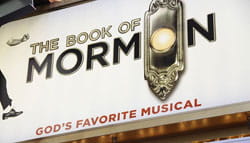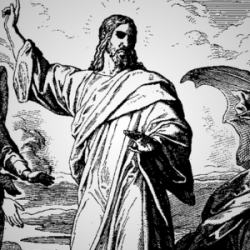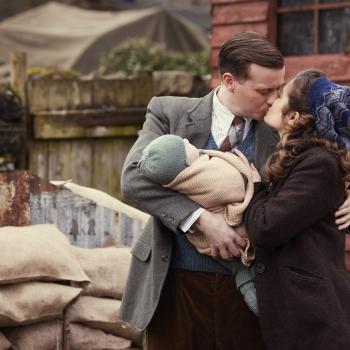 Mormons have long been fine targets for good satire—with Mark Twain emerging as the champion satirist, even over Matt Parker and Trey Stone.
Mormons have long been fine targets for good satire—with Mark Twain emerging as the champion satirist, even over Matt Parker and Trey Stone.
Twain wrote about 19th-century Mormon polygamy after a two-day visit to Salt Lake City, and said he had been prepared to draw the nation's attention to the abomination yet again—until he saw the Mormon women and had a change of heart:
I was touched. My heart was wiser than my head. It warmed toward these poor, ungainly and pathetically "homely" creatures, and as I turned to hide the generous moisture in my eyes, I said, "No—the man that marries one of them has done an act of Christian charity which entitles him to the kindly applause of mankind, not their harsh censure—and the man that marries sixty of them has done a deed of open-handed generosity so sublime that the nations should stand uncovered in his presence and worship in silence.
Twain also famously called the Book of Mormon "chloroform in print" and proclaimed, "If Joseph Smith composed this book, the act was a miracle. Keeping awake while he did it was, at any rate."
Few can take on the great Mark Twain in satire, but Parker and Stone make a reasonable attempt. A South Park episode on the Mormons was not as humorous as Twain's take, but it was gentle, amusing, and only slightly mocking as a chorus sang behind the Mormon kid's description of his religion: "dumb, dumb, dumb..."
The Book of Mormon (the musical) is the most ambitious satire on Mormons yet, unless we count Trapped by the Mormons (a silent film made in 1922, portraying an evil Mormon missionary in search of virgins to fill his harem). Some Mormons have been offended by the Broadway hit; others have found it touching and spot on in several places; many see it as another example of religious persecution. A large group of Mormons translate the musical into an opportunity for real missionary work—and of course, the "I'm a Mormon" campaign has been in full swing, especially in New York.
I found the musical funny, touching, sometimes vulgar, occasionally recognizable in its depictions, but always clearly from an outsider's perspective. It was obvious that Parker and Stone had some help from Latter-day Saints. How else would they even know about some of the minutia in our history and dogma? (Kolob?) Still, they see us through a glass darkly—even though they seem to genuinely like what they see—and view the African converts/investigators through an even darker lens.
In the musical, Elder Price, a bright-eyed, utterly naïve Mormon missionary, and his socially inept companion, Elder Arnold Cunningham, enter the Missionary Training Center and then begin serving their missions in Uganda. They encounter natives who are being threatened by a war lord who believes he can cure AIDS by raping babies, and who also demands genital mutilation for the women. The missionaries help the natives, though Elder Cunningham makes up absurd stories to explain why clitoridectomies are against God's commandments. The natives seem to buy in to Cunningham's tales. When it becomes clear that he has made up just about everything, the beautiful African woman he has baptized loses her faith—until another native reveals that Elder Cunningham was speaking only metaphorically. Ultimately, the natives celebrate their new religion—and their new book of scriptures: The Book of Arnold.
Whenever an outsider presumes to write about someone else's culture or faith, the insider will always recognize discrepancies. Richard Bushman, one of our most important historians, said, "The Book of Mormon (musical) is like a funhouse mirror. The reflection is hilarious, but not really you."
I agree with Bushman. I do not want to pretend that the Parker/Stone satire is a primer on Mormonism and respond with whiney repetitions of, "Hey, you got that wrong!" Indeed, I want to be as gentle in my critique as Parker and Stone are in their satire.
So I have opted to simply tell about "the real Elder Price."
My husband and I served in the Provo, Utah Missionary Training Center with missionaries bound for French speaking countries. Many went to the Congo-Kinshasa/Cameroon mission—including Elder Brandon Price (who is the "Elder Price" in my series). I wrote to twenty missionaries who served in Congo/Cameroon, and I have the histories of their missions. For many, I was the "other mom," the one they'd talk to about difficult issues like companionship problems, disease, fainting spells, political threats, etc. They all became my adopted sons.
The missionaries in the musical are in Uganda. Of course, each African country is distinctive, but for the purposes of these essays, I often refer to Africa as a whole rather than to the specific countries.
I offer this series of essays as a view of what life is actually like for Mormon missionaries in Africa, not as a direct response to the musical—though there are a few responses. And I offer it lovingly—to Parker and Stone, but especially to "my" missionaries and to those they taught.
12/2/2011 5:00:00 AM




